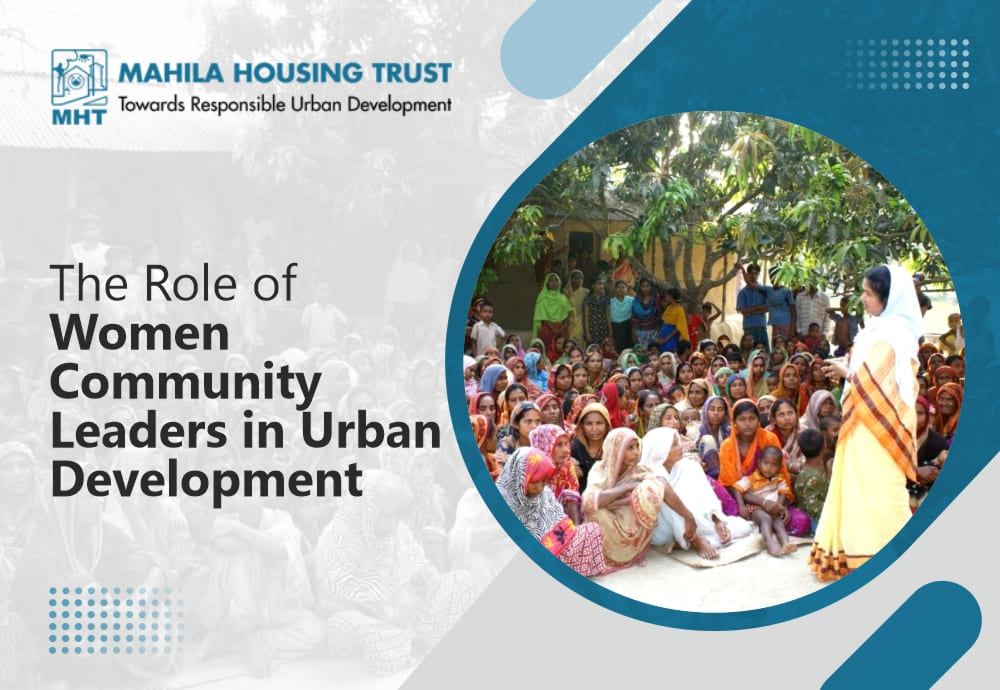
The Role of Women Community Leaders in Urban Development
Our cities are living, breathing entities in constant flux. The way we develop them shapes not just the physical landscape, but the lives of everyone who calls it home. Yet, for far too long, this development has overlooked a crucial group: women community leaders. These strong women, deeply embedded in the fabric of their communities, play a vital role in shaping a city’s future. This blog post explores the multifaceted role of women community leaders and their positive impact on urban development in India, Nepal, and Bangladesh.
Why Women Community Leaders Matter in Urban Development
Traditional urban development plans often lack a holistic perspective. Women, through their lived experiences, bring a unique viewpoint to the table. They face different challenges than men in urban spaces, from concerns about safety and access to services to the need for childcare facilities. This perspective allows them to advocate for a more inclusive and equitable approach to development, ensuring that no one is left behind.
Furthermore, women often form strong social networks within their communities. These networks act as powerful tools for information sharing, collective action, and mobilization. When women leaders emerge from these networks, they can effectively push for change and ensure that development initiatives address the needs of the entire community, not just a select few.
Women leaders also prioritize social issues that are often neglected in traditional development plans. This includes access to education and healthcare, particularly for girls and women, as well as sanitation and childcare facilities. Their focus on these issues fosters the creation of more sustainable and humane cities where everyone can thrive.
Key Areas of Impact by Women Community Leaders
The positive impact of women community leaders is felt across various aspects of urban development:
- Housing and Infrastructure: Women leaders advocate for safe, affordable, and gender-sensitive housing projects. They ensure these projects cater to the specific needs and safety concerns of women and families. Additionally, they influence infrastructure development to meet the community’s needs, ensuring access to clean water, proper sanitation, and efficient waste management.
- Economic Empowerment: Many women community leaders actively support local businesses and entrepreneurship, particularly among women. They champion initiatives that provide microfinance opportunities, skills development programs, and access to markets for women entrepreneurs. This fosters economic independence and creates a more vibrant local economy.
- Education and Healthcare: Women leaders are often vocal advocates for improved access to quality education and healthcare for all members of the community. They prioritize early childhood education programs and maternal health initiatives, ensuring a healthier and more educated population.
- Safety and Security: Women community leaders understand the safety concerns women and children face in urban spaces. They work tirelessly to address these concerns by pushing for improved street lighting, safe public transportation options, and community policing initiatives.
Challenges Faced by Women Community Leaders
Despite their immense contributions, women community leaders face significant challenges:
- Gender Bias: Deep-rooted societal gender bias and discrimination can hinder women’s leadership and their access to resources. They may be excluded from decision-making processes or struggle to obtain funding for their initiatives.
- Lack of Support: Women leaders often lack access to dedicated training programs, mentorship opportunities, and financial resources. This can limit their skills development and hinder their ability to effectively lead and advocate for change.
- Balancing Responsibilities: The burden of domestic work and childcare disproportionately falls on women. This can take a toll on their time and energy, making it difficult to fully dedicate themselves to community leadership roles.
Overcoming Challenges and Promoting Women’s Leadership
To ensure women community leaders can reach their full potential, we need to address these challenges:
- Empowerment Programs: There’s a critical need for training programs that equip women with leadership skills, resource mobilization strategies, and advocacy techniques. These programs will empower them to navigate challenges and become even more effective leaders.
- Networking and Mentorship: Creating networks and mentorship programs that connect women leaders can provide them with invaluable support and guidance. Experienced leaders can share their knowledge and offer encouragement to those just starting their journey.
- Financial Support: Dedicated funding mechanisms specifically geared towards supporting women-led community development initiatives are essential. This ensures they have the financial resources needed to implement their projects and make a lasting impact.
- Policy Advocacy: Advocating for policies that promote gender equality in urban development decision-making and resource allocation is crucial. This will create a more inclusive environment where women leaders can have their voices heard and their ideas implemented.
Building a Brighter Future with Women Community Leaders
Here at Mahila Housing Trust, a leading women empowerment organization in India, we recognize the immense contribution of women community leaders. We work alongside them by providing training programs, mentorship opportunities, and access to resources. Our mission is to empower women to become strong leaders who can advocate for the needs of their communities and drive positive change in Urban grassroots development.
